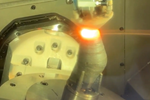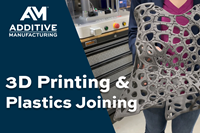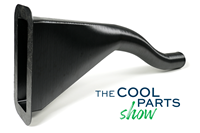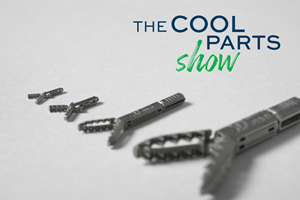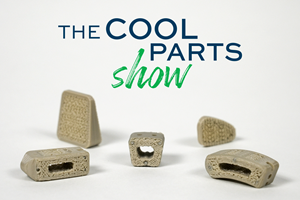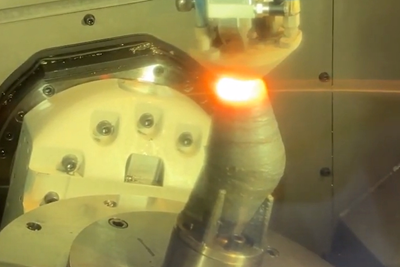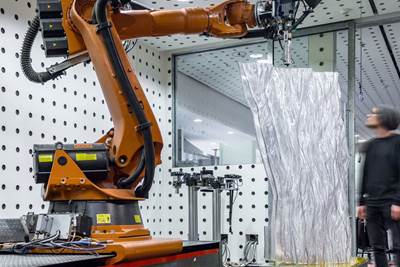Materialise Develops 3D Printing Software for Medical Quality Management, Compliance
Materialise’s Mimics Flow Case Management software supports quality management and compliance for hospital 3D printing labs by enabling hospitals to track 3D printing and planning workflow to ensure each step is quality-compliant.
The Mimics Flow Case Management software enables 3D labs and clinicians to better organize, track and collaborate on cases. Photo Credit: Materialise
Materialise’s Mimics Flow Case Management is a software solution for hospital point-of-care 3D printing labs. The offering enables hospitals to enforce quality management within 3D workflows, digitally streamline point-of-care and 3D printing processes, and empower collaboration between clinicians, 3D lab leaders, and engineers.
The company says personalized patient care is increasingly becoming a reality, driven by technological advancements such as 3D printing and advanced visualization techniques. Increased accessibility of 3D printing in the medical field has led to significant growth of applications using the technologies. However, hospitals are missing the right tools to scale their 3D printing and planning activities, ensure quality compliance and enable better patient care.
“Point-of-care 3D labs are becoming more common as hospitals see the value in on-site 3D printing and advanced visualization for personalized patient care,” says Brigitte de Vet-Veithen, vice president of Materialise Medical. “With the new Mimics Flow solution, Materialise offers 3D labs and the clinicians who rely on them a complete case management system to better organize, track and collaborate on cases.”
Mimics Flow integrates with Mimics Innovation Suite 26, the medical image-based engineering toolbox, to provide a single workspace for all stakeholders, including 3D lab engineers and leaders, and clinicians requesting 3D services. With this single workspace, administrators can view all operational work, while clinicians and engineers have individual user profiles with their access interface and personalized rights. This streamlined process and access help scale operations, organize and manage files, and improve efficiency in point-of-care 3D printing activities.
Quality management features in Mimics Flow Case Management enable hospitals to implement checks and controls within their workflow, ensuring each case meets quality requirements. Users can record quality metrics and leverage the data to measure, analyze and optimize their 3D planning and printing processes. In addition, automatically generated case history reports and action logs help ensure seamless compliance and promote high-quality delivery.
The user-friendly 3D Viewer accelerates the approval process and increases clinician engagement by enabling both the 3D lab and clinician to provide feedback and updates on the status of each case. In addition to improving collaboration among hospital stakeholders, Mimics Flow Case Management can be used as a patient and peer communication tool. Using the 3D viewer during consultations enables clinicians to share or open a view of their 3D models from any device.
- Learn about the CO-AM System Materialise developed for holistic process quality. QPC users can collect and monitor data during the different stages of product development —including research, validation and production — giving additive manufacturers a holistic view of their process and its interrelationships.
- Read about the opening of Materialise’s medical 3D printing facility. At the new facility in Plymouth, Michigan, Materialise specializes in the 3D printing of personalized titanium cranio-maxillofacial (CMF) implants for more patient-specific care.
Related Content
Micro Robot Gripper 3D Printed All at Once, No Assembly Required: The Cool Parts Show #59
Fine control over laser powder bed fusion achieves precise spacing between adjoining moving surfaces. The Cool Parts Show looks at micro 3D printing of metal for moving components made in one piece.
Read MoreTo Grow Additive Manufacturing Adoption, HP Is Aiming for the C-Suite
3D printing has been largely the purview of service bureaus and technical specialists but HP sees a future where it is increasingly the concern of OEM executives — and the company is taking steps to reach them.
Read MoreDurable, Waterproof 3D Printed Casts: The Cool Parts Show #58
Recovering from an injury with an ActivArmor cast means that patients can exercise, bathe and live life while they heal. We get a firsthand look at the solution in this episode of The Cool Parts Show.
Read MoreFDA-Approved Spine Implant Made with PEEK: The Cool Parts Show #63
Curiteva now manufactures these cervical spine implants using an unusual 3D printing method: fused strand deposition. Learn how the process works and why it’s a good pairing with PEEK in this episode of The Cool Parts Show.
Read MoreRead Next
Hybrid Additive Manufacturing Machine Tools Continue to Make Gains (Includes Video)
The hybrid machine tool is an idea that continues to advance. Two important developments of recent years expand the possibilities for this platform.
Read MoreAt General Atomics, Do Unmanned Aerial Systems Reveal the Future of Aircraft Manufacturing?
The maker of the Predator and SkyGuardian remote aircraft can implement additive manufacturing more rapidly and widely than the makers of other types of planes. The role of 3D printing in current and future UAS components hints at how far AM can go to save cost and time in aircraft production and design.
Read More3D Printing Brings Sustainability, Accessibility to Glass Manufacturing
Australian startup Maple Glass Printing has developed a process for extruding glass into artwork, lab implements and architectural elements. Along the way, the company has also found more efficient ways of recycling this material.
Read More

